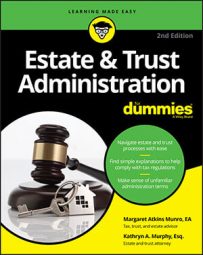We’d love to tell you that, when you’ve completed the estate’s final tax returns, the final accounts, crossed your t’s and dotted your i’s, that you’re done, finished, complete. We’d be lying. No matter how careful you are, matters beyond your control may mean small amounts of additional money, or assets you never knew about, whether belonging to principal or income, will eventually find their way into your hands.
Whether they’re dividend payments that arrive well after the fact, securities litigation proceeds that are distributed years after the trust terminates, or tax refunds you didn’t know were in the pipeline, you’ll most likely receive checks after you close all the accounts. Far less common are assets that are discovered years and years in the future that belonged to the grantor and should have been in the trust.
Good news: The trust is still closed and, in most cases, you don’t have to reopen it. Bad news: You have to do something with this money and these assets, and keeping them is not an option. If you were working with an attorney, give any checks to the attorney with instructions as to who these funds belong to (income beneficiary or remainderman).
The attorney can deposit the money into his clients’ funds account, and then cut a check to the appropriate person. If you’re dealing with after-discovered assets, you can contact the transfer agent and ask for the appropriate forms you need to reregister this asset in the name of the remainderman.
The one exception to this general rule is if the asset is still registered in the decedent’s name and rightly belonged in the probate estate. In that case, you may want to throw yourself on the mercy of the probate court staff and let them help you to reopen probate. Some, but not all, the steps will have to be repeated. Sorry!

